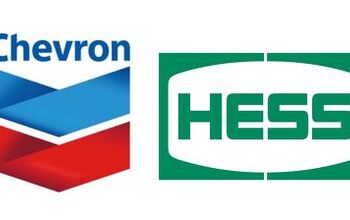GOP Reps: Did The White House Pressure State-Owned Automakers Into Accepting GHG Standards?
With Senator Chuck Grassley (R-IA) already taking the White House and Treasury to task for possibly helping GM avoid paying the “TARP Tax,” Republican representatives Darrell Issa (R-CA) and Lamar Smith (R-TX) are attacking the auto bailout from another angle, writing a letter to nine automaker CEOs requesting clarification of the negotiating process that led to recently-passed final rules on a ramp-up of greenhouse gas (GHG) emissions standards. In their press release on the issue, Issa and Smith note:
It is unclear whether the Administration used leverage created by the possibility of a taxpayer bailout of GM and Chrysler to secure their cooperation and support for new fuel economy standards. Moreover, there is reason to believe Administration officials used inappropriate tactics to ensure broad based support across the industry. Given the clear conflict-of-interest issues at play, which naturally arise when the government is in a position to pick winners and losers and impact the future viability of private entities, it was imperative that the Administration act with the utmost transparency. Instead, the White House imposed an unprecedented level of secrecy.
Are Issa and Smith on to something, or is this simply a partisan dogpile on an unpopular policy? Hey, this is politics… does it even matter?
On the other hand, the automakers have made it clear that the national emissions deal was actually the lesser of two evils. When California received an EPA waiver allowing its Air Resources Board to increase state emissions standards (which were then adopted by a number of other states), the auto industry was facing the prospect of a multi-state patchwork of emissions standards. And according to the Alliance of Auto Manufacturers’ spokesman Charles Territo, that would have been even worse for automakers than the unification of national standards around California’s more aggressive schedule. Territo tells the DetN:
For years, automakers made no secret of their desire for a national fuel economy/greenhouse program. The regulations finalized earlier this month eliminate the patchwork of conflicting standards and restore federal leadership on this important issue
Moreover, Issa and Smith’s fears are further mitigated by the fact that non-bailed-out automakers like Ford, Honda and Toyota (all AAM members) signed the agreement despite the fact that the White House had no bailout-related leverage over them. The Obama Administration was quick to pick up on this discrepancy, and press secretary Robert Gibbs made it the centerpiece of his defense of the deal, saying:
[Issa and Smith] might have a point if [GM and Chrysler] were the only two companies that were standing behind [President Obama], but Ford has not received any assistance. The notion that you have collectively an industry speaking with one voice and, in this time speaking with a voice for reform, I think that honestly says all you need to hear.
Finally, there’s one more reason to suggest that negotiations involved plenty of give-and-take between officials and automakers: the fact that the new standard is absolutely riddled with loopholes. Had Obama merely strong-armed the automakers, why would he have included such giveaways as the “super credit” which allows super-efficient cars to act as multipliers for overall fleet efficiency?
Unfortunately, even though the evidence suggests that negotiations were above-board (at least by D.C. standards), the White House is lending credence to Issa and Smith’s concerns by refusing to release documents from the negotiations. Their presser states:
According to one participant to these negotiations, the President’s Environment and Energy Czar, Carol Browner, imposed a vow of silence over the negotiations that included representatives from Chrysler and General Motors (GM), the United Autoworkers, and California Air Resources Board Chairman Mary Nichols, and the Environmental Protection Agency.
The White House has steadfastly refused to respond to two previous letters asking whether the Energy and Environment Czar violated the mandates of the Presidential Records Act when she orchestrated the secret negotiations.
Does this sound at all familiar? Thanks to past Democratic attacks on Bush Administration secrecy, and an unwillingness to release documents on GHG/CAFE standard negotiations, the Obama Administration is casting doubt on what would otherwise be a fairly airtight defense of a major policy accomplishment. And that plays into widespread fears of the conflicts of interest that seem to be unavoidable when the government involves itself with industry. Straightforward answers to these, and Senator Grassley’s TARP Tax concerns should be forthcoming if the administration hopes to maintain any credibility as an ethical, neutral actor in the economic recovery.
More by Edward Niedermeyer
Latest Car Reviews
Read moreLatest Product Reviews
Read moreRecent Comments
- Lorenzo People don't want EVs, they want inexpensive vehicles. EVs are not that. To paraphrase the philosopher Yogi Berra: If people don't wanna buy 'em, how you gonna stop 'em?
- Ras815 Ok, you weren't kidding. That rear pillar window trick is freakin' awesome. Even in 2024.
- Probert Captions, pleeeeeeze.
- ToolGuy Companies that don't have plans in place for significant EV capacity by this timeframe (2028) are going to be left behind.
- Tassos Isn't this just a Golf Wagon with better styling and interior?I still cannot get used to the fact how worthless the $ has become compared to even 8 years ago, when I was able to buy far superior and more powerful cars than this little POS for.... 1/3rd less, both from a dealer, as good as new, and with free warranties. Oh, and they were not 15 year olds like this geezer, but 8 and 9 year olds instead.


































Comments
Join the conversation
"Moreover, Issa and Smith’s fears are further mitigated by the fact that non-bailed-out automakers like Ford, Honda and Toyota (all AAM members) signed the agreement despite the fact that the White House had no bailout-related leverage over them." Well, that does pretty much throw a bucket of ice water on the whole strong armed argument, eh? Nice choice of an ironic photo as well. That is Ford's guy Obama is shaking hands with, yes? BTW, you don't suppose any Republican administration has ever used strong arm leveraging tactics to get what it wants, do you?
The government "leaning" on automakers to improve GHG emissions? Next they'll use the EPA to "pressure" coal companies to stop blowing the tops of appalachian mountains and stop polluting rivers. I'm telling you, it's a government conspiracy! That's it - I'm putting on a three cornered hat and a funny costume and joining the tea party.